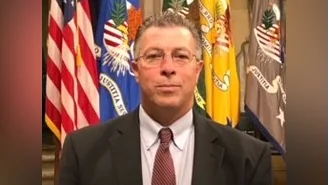Gov. Kim Reynolds | Wikimedia Commons/Gage Skidmore
Gov. Kim Reynolds | Wikimedia Commons/Gage Skidmore
The stay-at-home order issued by Gov. Kim Reynolds in Iowa is scheduled to lift on April 30 as she continues to track the COVID-19 rates to stay in alignment with guidelines released by the White House.
“I know that the possibility of getting life back to normal sooner rather than later is what hardworking Iowans want, and it is absolutely what I want, too," Reynolds said, according to the Des Moines Register. "As we continue to learn how to live with COVID-19 until a vaccine is available, we'll also learn how to carefully balance not only the health of Iowans, but the health of our economy."
The issue was set an order on March 13. Schools will still remain closed for the remainder of the academic year, Reynolds announced April 17.
However, positive occurrences of COVID-19 in Iowa have been increasing, according to the Des Moines Register.
The White House announced an "Opening America Up Again" strategy on April 15. Reynolds said her plan fit into this strategy. It is a three-phase strategy contingent on the COVID-19 rates declining over a 14-day period.
In the first phase, bars are scheduled to remain closed. However, gyms would open up again, observing social distancing measures and strict sanitation procedures. Elective surgeries would resume on an out-patient basis. Vulnerable people and the elderly would keep a shelter-in-place order.
The decision to open Iowa up again depends on a variety of factors. Having more tests and accurate measurements is one of the first steps that Reynolds advocates.
Contact tracing is another strategy the state is looking to use, which is monitoring and tracking individuals who have been in contact with those who test positive.
Serology tests are being ordered, which is a method of detecting antibodies in the blood.
“That's just one strategy that we'll use in terms of trying to, you know, dial back up and reopen things a little bit," Reisetter, deputy director of the Iowa Department of Public Health, said.
According to the Des Moines Register, Peter Orazem, economics professor at Iowa State University, said that the longer the shut downs last, the more long term implications there will be.


 Alerts Sign-up
Alerts Sign-up